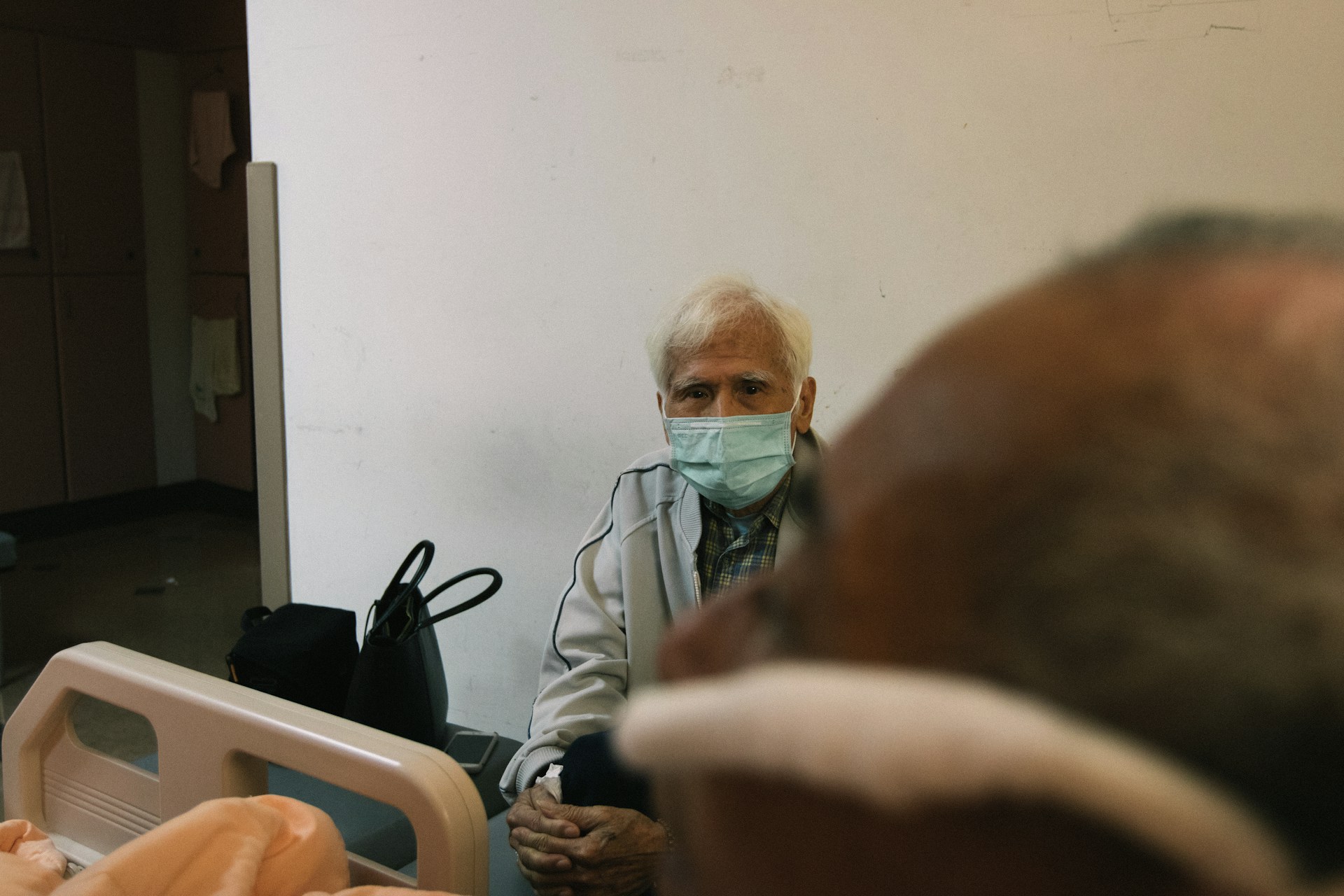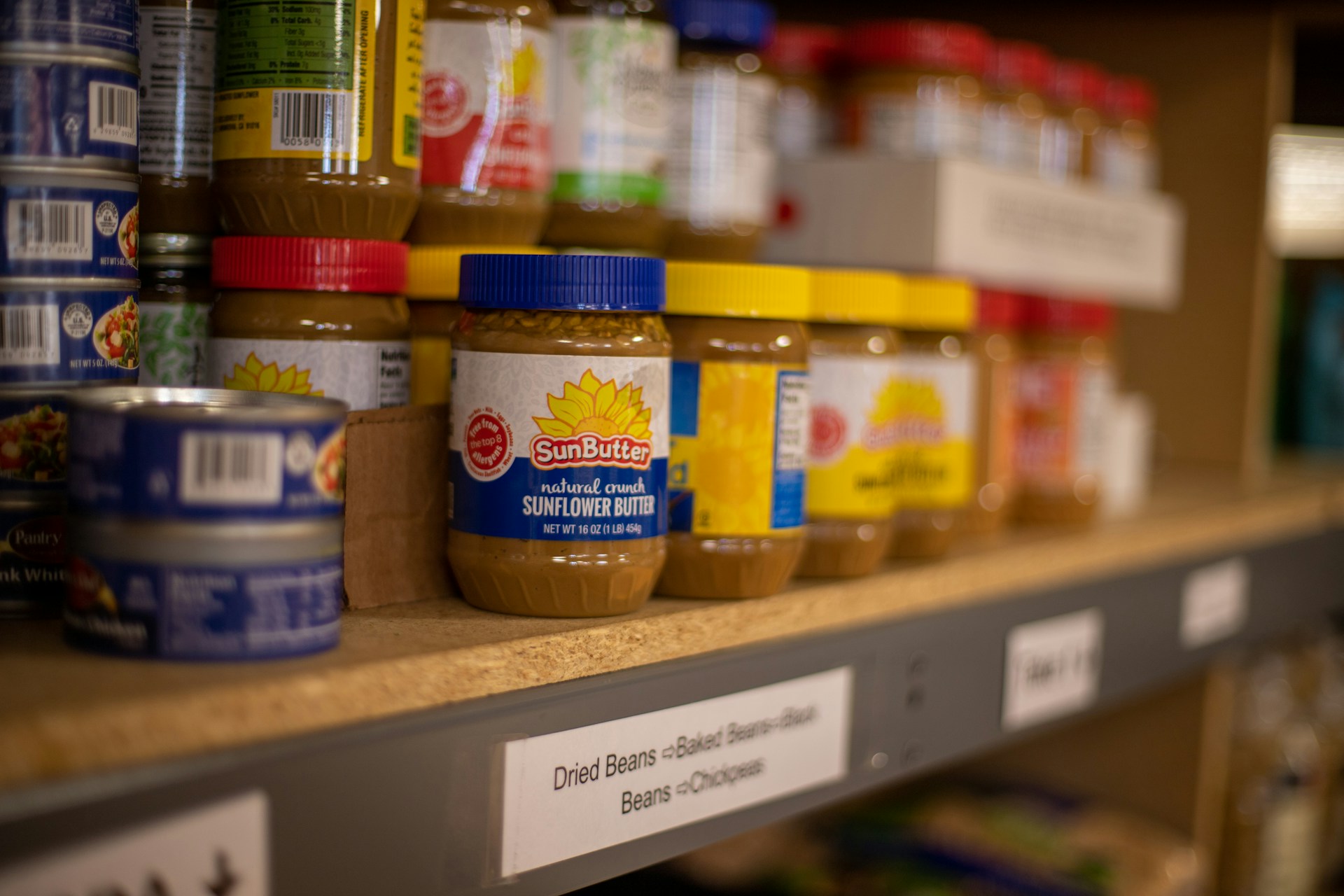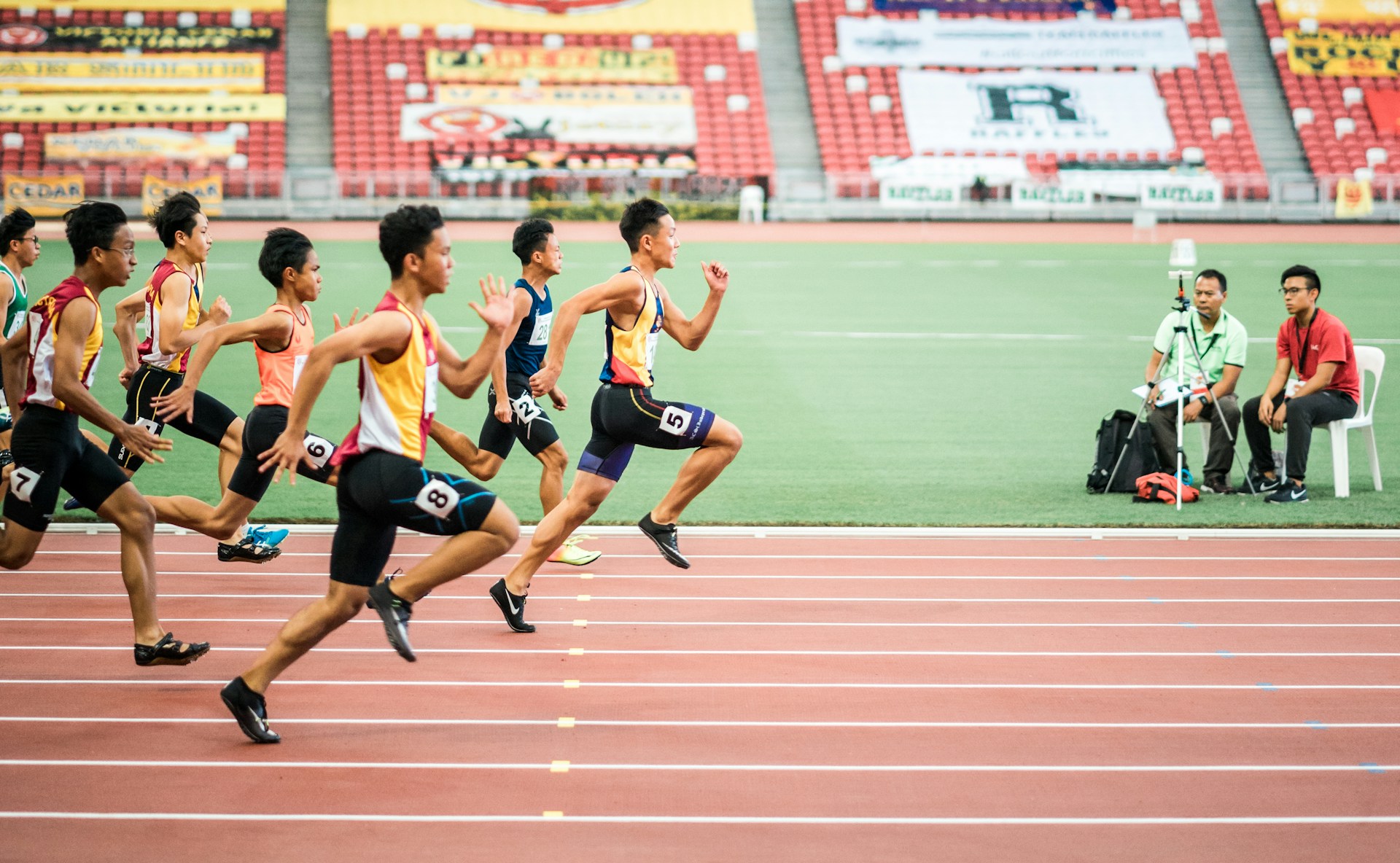The Relationship between Menu Anxiety, Food Preference, Eating Habits, and the Nutritional Status of Generation Z in Cinere, Depok
Hubungan Menu Anxiety, Pemilihan Makanan, dan Kebiasaan Makan pada Status Gizi Generasi Z di Cinere, Depok

Downloads
Background: Generation Z is driving modern shopping trends influenced by technology. One of the emerging phenomena is Menu anxiety, which is described as the feeling of anxiety in choosing food. This condition can potentially lead to suboptimal nutritional intake, affecting the nutritional status.
Objectives: The present study aimed to analyze the relationship between anxiety menu, food selection, eating habits, and the nutritional status of Generation Z in Cinere area, Depok.
Methods: It used a cross-sectional research design with 90 Generation Z subjects aged 16-18 years at Dian Didaktika Islamic Private High School (SMAS), Cinere, Depok. The data collected included subject characteristics, Eating habits, and eating patterns based on the Food Frequency Questionnaire (FFQ). Weight and height were measured directly. A bivariate test was used with Spearman Rank.
Results: As many as 65.5% of subjects experienced menu anxiety, with 86.2% choosing a menu based on taste. The main reasons for difficulty in choosing a menu were fear of regret (41.4%) and menu choices (26.4%). Subjects consumed fruits (46.0%) and vegetables (40.2%) about 2-4 days/week, and had good nutritional status. There was a relationship between the frequency of eating out and the nutritional status of the subject based on the Body Mass Index by age (BMI/A) (p-value=0.019, r=0.252), but there was no significant relationship between the habit of eating fruit, vegetables, sweet snacks and sweet drinks and the nutritional status (p-value>0.05).
Conclusions: Eating out habits are related to nutritional status. Menu anxiety, consideration in food selection, and consumption of fruits, vegetables, sweet snacks, and sweet drinks do not have any relationship with nutritional status.
Prentice, A. M. The Triple Burden of Malnutrition in the Era of Globalization. in 51–61 (2023). doi:10.1159/000529005.
Yuningsih, D. E. Masalah Gizi pada Remaja. Kementrian Kesehatan https://yankes.kemkes.go.id/view_artikel/2214/masalah-gizi-pada-remaja (2023).
UNICEF. Analisis Lanskap Kelebihan Berat Badan Dan Obesitas Di Indonesia. (Jakarta, 2022).
Kementerian Kesehatan RI. Riskesdas 2018. (2018).
Qurniawati, R. S. & Nurohman, Y. A. eWOM PADA GENERASI Z DI SOSIAL MEDIA. J. Ekon. Manaj. Sumber Daya 20, 70–80 (2018).
Dimock, M. Where Millennials end and Generation Z begins. Pew Research Center (2019).
Kemenkes. PERATURAN MENTERI KESEHATAN REPUBLIK INDONESIA No 25 Tahun 2026 Tentang Rencana Aksi Nasional Kesehatan Lanjut Usia Tahun 2016-2019. (Kemenkes RI, Jakarta, 2016).
Badan Pusat Statistik. Hasil Sensus Penduduk (SP2020) pada September 2020 mencatat jumlah penduduk sebesar 270,20 juta jiwa. Bps.Go.Id 1–52 (2021).
Kymäläinen, T., Seisto, A. & Malila, R. Generation z food waste, diet and consumption habits: A finnish social design study with future consumers. Sustain. 13, 1–14 (2021).
Wajon, E. & Richter, J. Students’ Intention to Reduce Food Waste An Approach with an Extended Version of the Theory of Planned Behavior. (Uppsala University, sweden, 2019).
EIT Food. Our Food, Our Food System. https://www.eitfood.eu/media/news-pdf/Our_Food%2C_Our_Food_System_-_EIT_Food_report_.pdf (2021).
Martinez, T. Gen Z Food Trends and Statistics for 2024. Toast https://pos.toasttab.com/blog/on-the-line/gen-z-food-trends-and-statistics?srsltid=AfmBOoqGyVRyXZiabxMiLrD3un33Iq0-CNkG_EgiulkUWddMHiRhK_B1 (2023).
Britain Thinks. Future Consumer: Food and Generation Z Rapid Evidence Assessment. https://www.food.gov.uk/sites/default/files/media/document/fsa191102bt-gen-z_rea_full-report_081019-final.pdf (2019).
Kaya, A. & Dalgiç, A. I. How does Internet Addiction Affect Adolescent Lifestyles? Results from a School-Based Study in the Mediterranean Region of Turkey. J. Pediatr. Nurs. 59, e38–e43 (2021).
Savelli, E. & Murmura, F. The intention to consume healthy food among older Gen-Z: Examining antecedents and mediators. Food Qual. Prefer. 105, 104788 (2023).
Bhaimiya, S. Gen Zers are suffering from ‘menu anxiety,’ and some are scared to order their own food at restaurants, new survey finds. Business Insider https://www.businessinsider.com/gen-z-menu-anxiety-ask-people-order-for-them-restaurants-2023-12 (2023).
Putri, A. A. & Anwar, K. The Relationship of Energy and Nutrient Intake from Eating Out and Eating at Home on Blood Hemoglobin Levels in Adolescents. Indones. J. Public Heal. Nutr. 4, 66–75 (2023).
Hasanah Harahap, L. A., Aritonang, E. & Zulhaida Lubis. The Relationship between Type and Frequency of Online Food Ordering With Obesity in Students of Medan Area University. Britain Int. Exact Sci. J. 2, 29–34 (2020).
Currie, C. et al. Health Behaviour in School-Aged Children (Hbsc) Study Protocol: Background, Methodology and Mandatory Items for the 2013/14 Survey. http://www.hbsc.org (2014).
Sanaky, M. M., Saleh, L. M. & Titaley, H. D. Analisis Faktor-Faktor Penyebab Keterlambatan Pada Proyek Pembangunan Gedung Asrama Man 1 Tulehu Maluku Tengah. J. Simetrik 11, 432–439 (2021).
Nurhayati, N., Wirasmi, S. & Yulianto, A. Optimizing Fruits and Vegetables Intake in Indonesia using Linear Programming. in Proceedings of the International Conference on Industrial Engineering and Operations Management (IEOM Society International, Michigan, USA, 2023). doi:10.46254/AN13.20230516.
Putri, M. K., Isfanda, Evand, H., Supandi, A. & Utami, F. M. Evaluasi Status Gizi Pada Anak Usia Sekolah Dasar di Kota Sigli. Pros. Semin. Nas. Biot. 2022 10, 180–182 (2022).
Kemenkes RI. Permenkes RI Nomor 2 Tahun 2020 Tentang Standar Antropometri Anak. (Kemenkes RI, Jakarta, 2020).
Prasasti, H. P. & Indrawati, V. PENGARUH KEBIASAAN MAKAN KELUARGA TERHADAP STATUS GIZI ANAK DI SDN BABAK SARI - KECAMATAN DUKUN -KABUPATEN GRESIK (STUDI KASUS). e-Jurnal Tata Boga 8, 119–125 (2019).
Sezgin, E. & Uyanik, B. Priorities of consumers for restaurant preferences: A conjoint analysis study on generation Z. J. Tour. Leis. Hosp. 4, 6–6 (2022).
Gignac, R. Gen Z Favor Sweets, Millennials Prefer Salty Snacks, Study Finds. CSP Daily News https://www.cspdailynews.com/snacks-candy/gen-z-favor-sweets-millennials-prefer-salty-snacks-study-finds (2023).
Elkarima, E. et al. Perilaku Mahasiswa Mengonsumsi Sugar Sweetened Beverage (SSB) Selama Pandemi COVID 19. Amerta Nutr. 7, 185–191 (2023).
Anggraeni, N. S., Wardono, P., Purwanegara, M. S. & Wibisono, A. Factors Influencing Gen Z’s Eating-Out Behavior In The Post-Covid-19 Pandemic Period. J. Southwest Jiaotong Univ. 58, 385–400 (2023).
Hong, C., Choi, H. (Hailey), Choi, E. K. (Cindy) & Joung, H. W. (David). Factors affecting customer intention to use online food delivery services before and during the COVID-19 pandemic. J. Hosp. Tour. Manag. 48, 509–518 (2021).
Yulius, K. G., King, F. T. & Suhaidi, K. Faktor -Faktor Keputusan Penggunaan Online Foodservice Delivery System Pada Generasi Milenial Di Jakarta. Hosp. J. Hosp. Tour. Innov. 6, 58–75 (2022).
Akhmadi, H. & Afif Rasyid Alfathah, S. Generation Z consumer’s preferences for online food ordering application: a study of gofood and grabfood. in E3S Web of Conferences vol. 316 (EDP Sciences, 2021).
Ma, Y. et al. The association between frequency of eating out with overweight and obesity among children aged 6–17 in China: a National Cross-sectional Study. BMC Public Health 21, (2021).
Li, M. et al. Pocket money, eating behaviors, and weight status among Chinese children: The Childhood Obesity Study in China mega-cities. Prev. Med. (Baltim). 100, 208–215 (2017).
Wibisono, I. D. & Ilman, A. S. Mengurangi Stunting Melalui Reformasi Perdagangan: Analisis Harga Pangan Dan Prevalensi Stunting Di Indonesia. www.cips-indonesia.org (2019).
Ekaningrum, A. Y., Sukandar, D. & Martianto, D. Keterkaitan Densitas Gizi, Harga Pangan, dan Status Gizi pada Anak Sekolah Dasar Negeri Pekayon 16 Pagi. J. Gizi dan Pangan 12, 139–146 (2017).
Kurniawati, N. D., Cahyaningsih, S. N. & Setya Wahyudi, A. The Correlation Between Online Food Ordering and Nutritional Status among College Students in Surabaya. Indones. J. Community Heal. Nurs. 6, 70 (2021).
Rahmawati, R., Nurwati, I. & Wiboworini, B. Does Eating Out Cause In Overweight And Obesity In Adolescence? Proc. Int. Conf. Nurs. Heal. Sci. 4, 281–288 (2023).
Copyright (c) 2025 Amerta Nutrition

This work is licensed under a Creative Commons Attribution-ShareAlike 4.0 International License.
AMERTA NUTR by Unair is licensed under a Creative Commons Attribution-ShareAlike 4.0 International License.
1. The journal allows the author to hold the copyright of the article without restrictions.
2. The journal allows the author(s) to retain publishing rights without restrictions
3. The legal formal aspect of journal publication accessibility refers to Creative Commons Attribution Share-Alike (CC BY-SA).
4. The Creative Commons Attribution Share-Alike (CC BY-SA) license allows re-distribution and re-use of a licensed work on the conditions that the creator is appropriately credited and that any derivative work is made available under "the same, similar or a compatible license”. Other than the conditions mentioned above, the editorial board is not responsible for copyright violation.












































